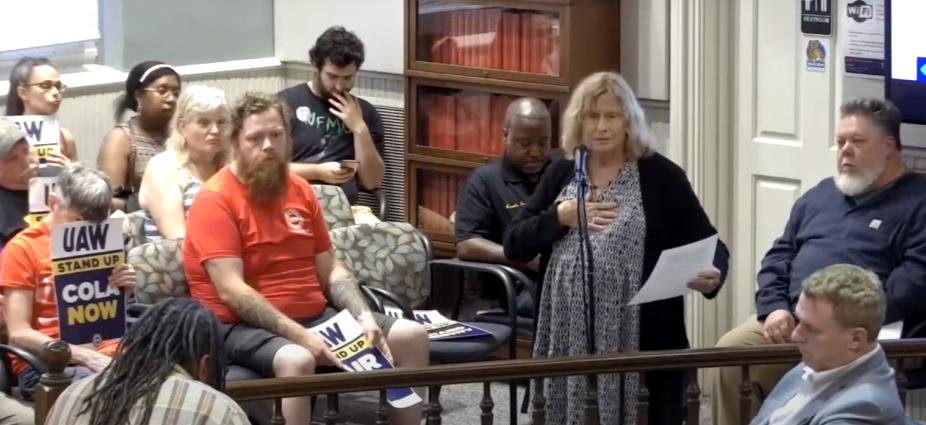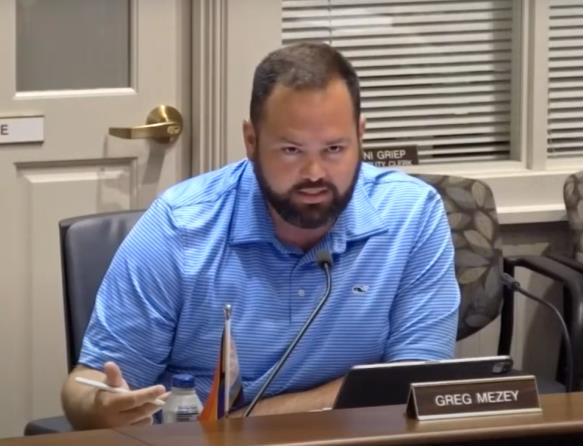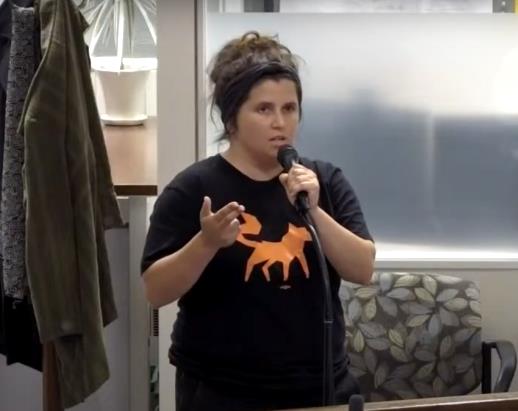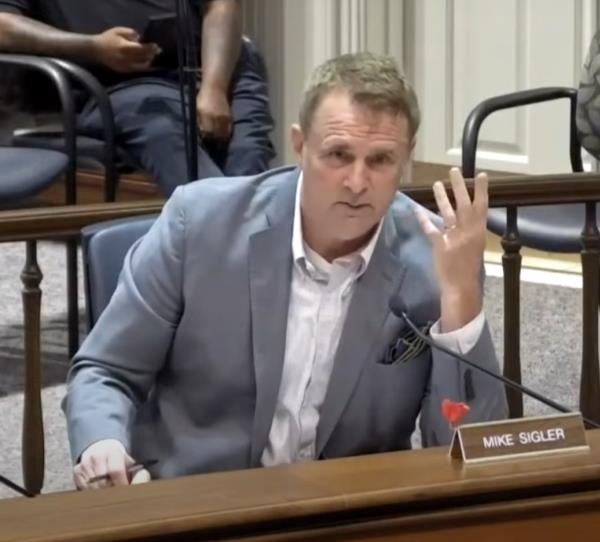
by Robert Lynch; August 7, 2024
A local businessman—no doubt, you’d know his name—met up with me at a recent Enfield social event. I advised him that Tompkins County was weighing whether to go-it-alone and set a higher, county-wide Minimum Wage.
“Those guys downtown, they’d just rather have small business destroyed,” were the words of his reply.
While his opinion may have been a bit overblown, little of what the Tompkins County Legislature did Tuesday night would work to allay his fears.
By an 11-3 vote, following more than 90 minutes of debate, and piling amendment onto amendment, the Legislature adopted a one-page, nine-paragraph Resolution that commits up to $50,000 in tax money to pay a consultant to study the impact of Tompkins County imposing its own, higher Minimum Wage. The Resolution also directed a legislative committee, the County Administrator, the County Attorney, and departmental staff to “collaborate with community stakeholders” to explore that impact as well.
Stricken by one of those amendments was a directive that administrators actually draft a local Minimum Wage Law that legislators might review and adopt.
“We’re not mandating an increase to the Minimum Wage,” Greg Mezey, chair of the committee that handed up Tuesday’s original Resolution, emphasized. “We’re not committing to a number. We’re literally committing to just getting serious about having a conversation that’s well-informed, that’s data-driven, and that’s inclusive of all the necessary voices that need to be at the table.”

The crafting of breakthrough initiatives by the local Legislature can trigger monotonous marathons. Tuesday’s was another one—and worse than usual. Not only did lawmakers debate endlessly among themselves. But add to that a nearly hour-long parade of Living Wage and labor union activists, who took to the mics with their often-repetitive arguments maintaining that local workers earn too little, live too poorly, and that Tompkins County should force employers to bring them higher pay.
“There’s nothing noble about overworking yourself into an early grave to pay rent,” Jorge DeFendini, a short-lived member of Ithaca’s Common Council and chair of Ithaca Democratic Socialists of America, told the Legislature. “If you can’t pay a livable wage as a business, then frankly… you aren’t running a viable business and maybe you should seriously reassess your business model.”
Critics of setting a wage too high latched onto DeFendini’s remark and employed it disparagingly several times later in the meeting.
Dryden’s Kathy Russell, a retired philosophy instructor, drew upon the spirit of Eleanor Roosevelt and said raising wages reflects the “nature of humanity.”
“The inequality that we have in this county is wrong…. It makes me sad. It makes my heart hurt,” Russell said.
Pete Myers, Director of the Tompkins County’s Workers’ Center, joined the discussion, as did a disproportionate number of representatives from Cornell University’s United Auto Workers service employees bargaining unit, members locked in ongoing negotiations with Cornell and poised to strike on the day students move into their dorms.
“Nobody should have to work multiple jobs to make ends meet,” Stephanie Heslop, a Cornell employee, the final of 15 speakers to support the Minimum Wage Resolution during public comments, insisted.
“Sometimes, coworkers ask me where I live,” Heslop said. “And when I tell them I live in Downtown Ithaca, the response every time is, ‘Wow, are you rich?’” But then she reminds them of where she works and what she does. “I am not rich,” Heslop said she tells them. “I can afford to live in Downtown Ithaca because I don’t have kids, I don’t have a car, and my apartment doesn’t have heat.”

Tuesday brought a confused disconnect between what those in the gallery pleaded for, and what legislators actually had on their desks. What Myers and his supporters seemed pushing for was a locally-mandated “Living Wage,” an hourly rate far above what the New York-imposed $15 an hour Minimum Wage currently is upstate. Myers predicts the local Living Wage could hit $24 later this year.
What was before legislators at the start of Tuesday’s meeting, though, was a process resolution: No figures; no mandates; nothing but a request to “collaborate with community stakeholders to develop an effective and sustainable minimum wage policy,” then “draft a local law” at some future date.
But after public comments were over, the first thing legislators did was to toss out the old draft and replace it with something quite different. And as the debate evolved, the Resolution became more different yet. Those “stakeholders” would still be talked with, but a consultant would be brought in too. And immediate plans to write the local law were edited out.
In the back of many a mind that night was political reality: A decades-old court precedent grants New York State broad power to pre-empt counties and localities from setting higher wage minimums of their own. A Columbia University law professor and an outside labor advisor brought into the meeting admitted as much. For Tompkins County, two choices are open: Either challenge the precedent in court, or ask the New York State Legislature to grant localities wage-setting authority through Home Rule power.
Lansing Republican Mike Sigler, who’s also a candidate for New York State Senate, voted against the much-overhauled Minimum Wage Resolution that emerged from debate Tuesday. Also voting “no” were Dryden Democrat Mike Lane and Legislature Chair Dan Klein. Each had his reasons. All other members supported it, including both who represent Enfield, Anne Koreman and Randy Brown.

Sigler sensed the disconnect between what stood before him for a vote and what advocates who stood behind him had asked for. He said one request could quickly lead to the other.
“I have great concern that every job is going to be a Living Wage job,” Sigler said. “Everybody that was sitting behind me, they all think that this is a Living Wage thing, not a Minimum Wage thing.”
“I have a lot of concern about the Living Wage that’s going to be coming up in November,” Sigler continued. He recalled Pete Myers’ prediction and applied it to County Government’s own payroll.
“They are talking $24 an hour,” Sigler remembered. “We are a Living Wage employer. If you just do back-of-the envelope math. We have 700 employees; 40 hours a week; six bucks an hour (increase). We’re talking wage compression; 52 weeks. You’re looking at over $8 Million it would end up costing the County.”
And it’s not just government. Groton’s Lee Shurtleff worried how a higher Minimum Wage would squeeze the Groton nursing home and drive his town’s local commerce across the line to Cortland and Cayuga Counties. Mike Lane feared the same thing.
“They’re going to move out of the county,” predicted Lane of local business. “They’re going to move to Cortlandville. They’re going to move to Auburn. They’re going to move to Owego. They’re going to move to so many places just outside of Tompkins County because the businesses are going to be chased out.”
“This is not saying that we’re going to start with a local law tomorrow, and I want to make sure that the public is aware of that,” legislator Shawna Black assured all who listened. “This is us saying that we are going to engage in a study, and this is a courtesy to our staff to say it’s one of our priorities moving forward, and we are going to support that.”
Before legislators tacked-on the stipulation that a $50,000 consultant would be retained, County Administrator Lisa Holmes predicted her already overburdened staff wouldn’t be able to study a local Minimum Wage’s impact until 2025.
But Legislature Chair Klein opposed taking this first step in fear that it would lead to mission creep, with resulting increases in expended staff time and tax dollars, perhaps all for naught.
“If we start down this road, if we’re doing this study, and the goal is to lead to a law that changes the Minimum Wage in Tompkins County, when that happens, we know that we would get sued, and that makes us a test case in New York State, and that’s what I want to argue against.”

Klein quoted County Attorney Maury Josephson as saying being sued is “about a given,” that defending the suit would be “an uphill battle,” and that his legal effort would be in the “hundreds of hours,” even with help from outside counsel.
“Instead,” Klein said, “I think we should just ask New York State to allow us the Minimum Wage locally, period.”
For what his opinion is worth, the Zoomed-in labor consultant, Paul Sonn, doubted Albany would release its control to localities, and that setting up a test case stood as a “more realistic strategy.”
“There are some unique challenges with a local entity proposing a Minimum Wage higher than what the state Minimum Wage is,” Housing and Economic Development Committee Chair Mezey acknowledged. What the latest study action does, he said, is “get the ball rolling.”
To Ulysses-Enfield legislator Anne Koreman, litigation would likely be worth the effort. Koreman claimed it was only because of a challenge to a now-overturned New York law that she and her gay partner were able to marry. Klein remembered that it was actually the State Legislature that made New York gay marriages happen. Koreman countered that the lawsuit brought the issue to legislative attention. They agreed to disagree.
“Helping people in this county to be able to afford to live here,” would make a local Minimum Wage a good idea, Koreman insisted. “We could go into all of the different ways this could affect people’s lives: child care, quality food, a quality place to live, a car that’s not breaking down, health insurance, all kinds of things; (including) having the luxury of not having two or three jobs.”
“So I think this is just so important,” Koreman said. “So let’s do this.”
And they did; 11 votes to three. Enfield’s other legislator, Randy Brown joined in the majority. Expect the local Minimum Wage issue to fade to the background now for a while, at least, politically. The consultants will get to work. The community debate will go on.
###

